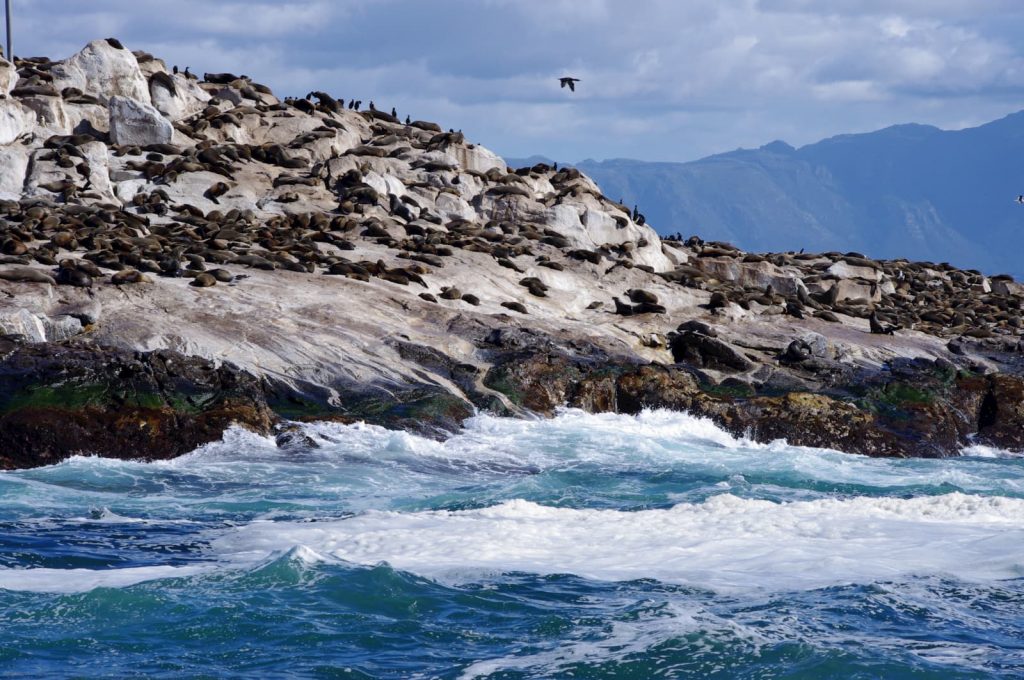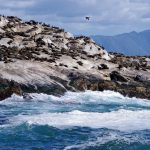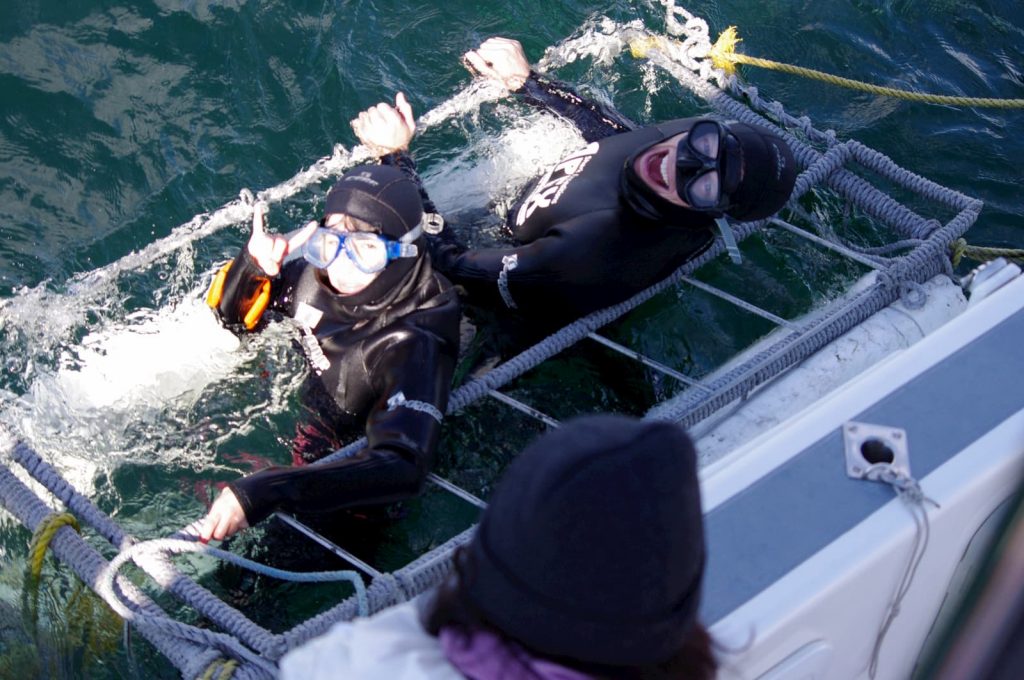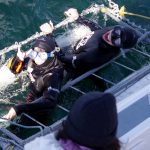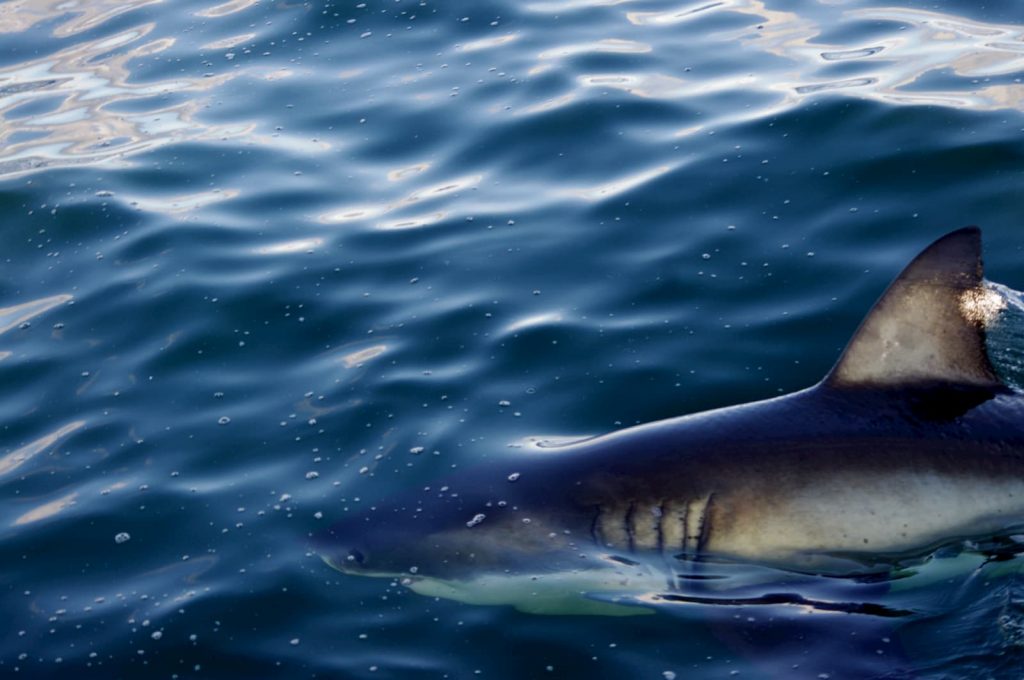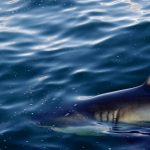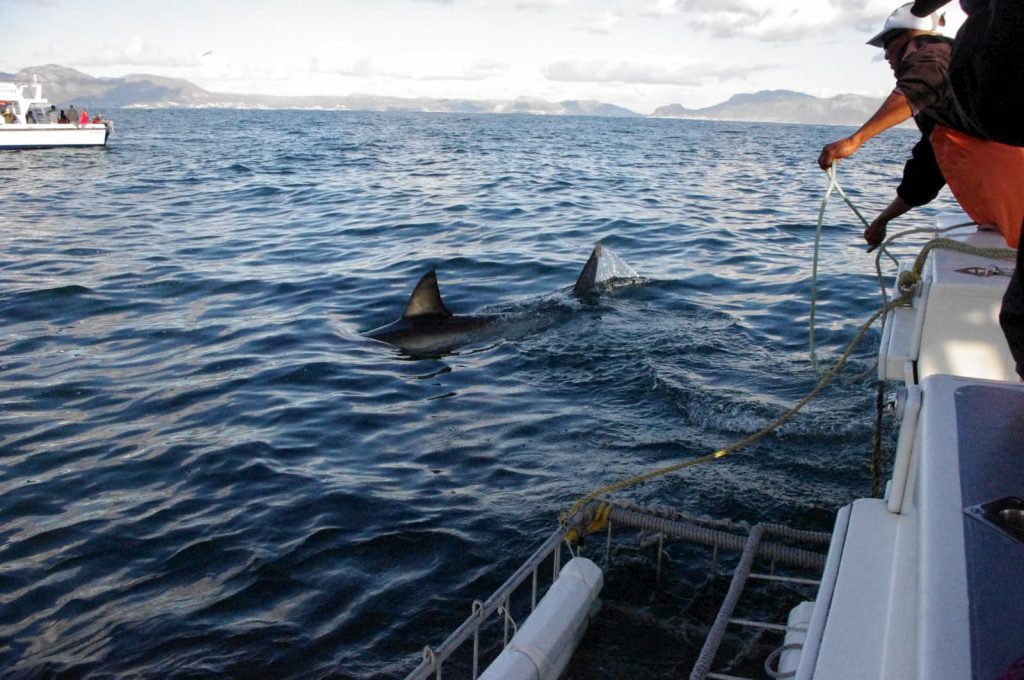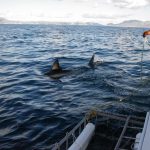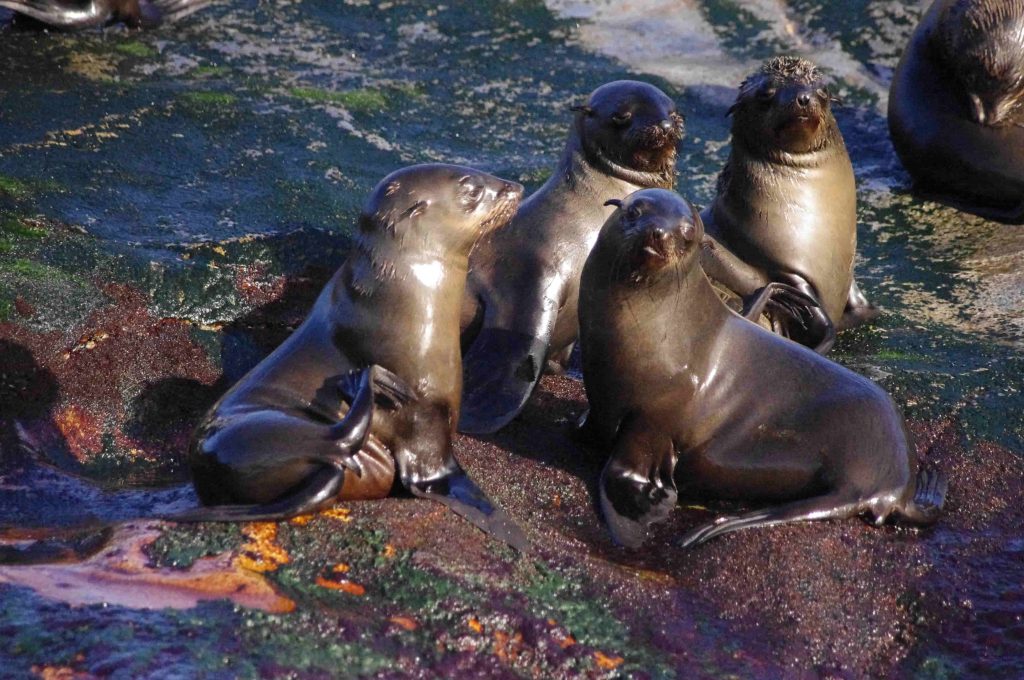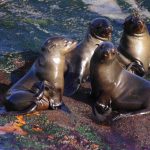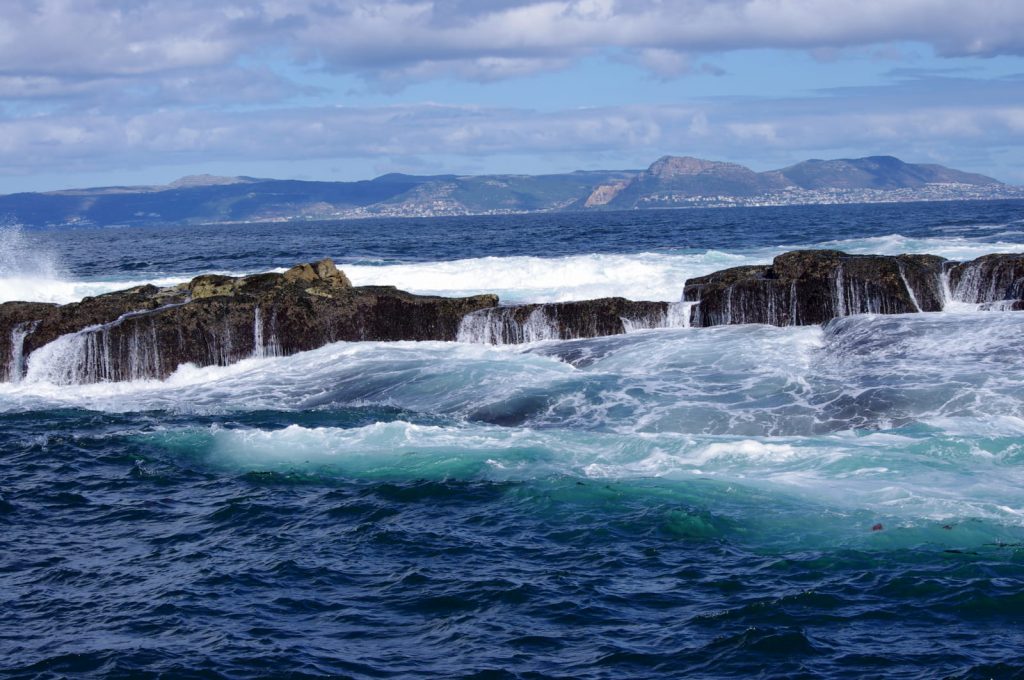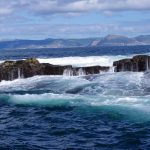Penguins, Scenic Coastline & Sharks
Boulders Beach
Home to an endangered colony of African Penguins, Boulder’s Beach is a place where you will be laughing and smiling like you did when you were a kid. You’ll find that if you want to fit in with these locals, you’ll need to do as the penguins do and waddle your way down the winding boardwalk leading to the large viewing area. It’s here where you’ll encounter the carefree penguins exploring their pristine beach. Along the path, you may spot a few that seem close enough to touch… but be sure to keep your hands to yourself if you want to go home with all your digits! Every visit to see these silly creatures helps in the conservation effort towards one day allowing these birds to shimmy their way off the endangered species list.
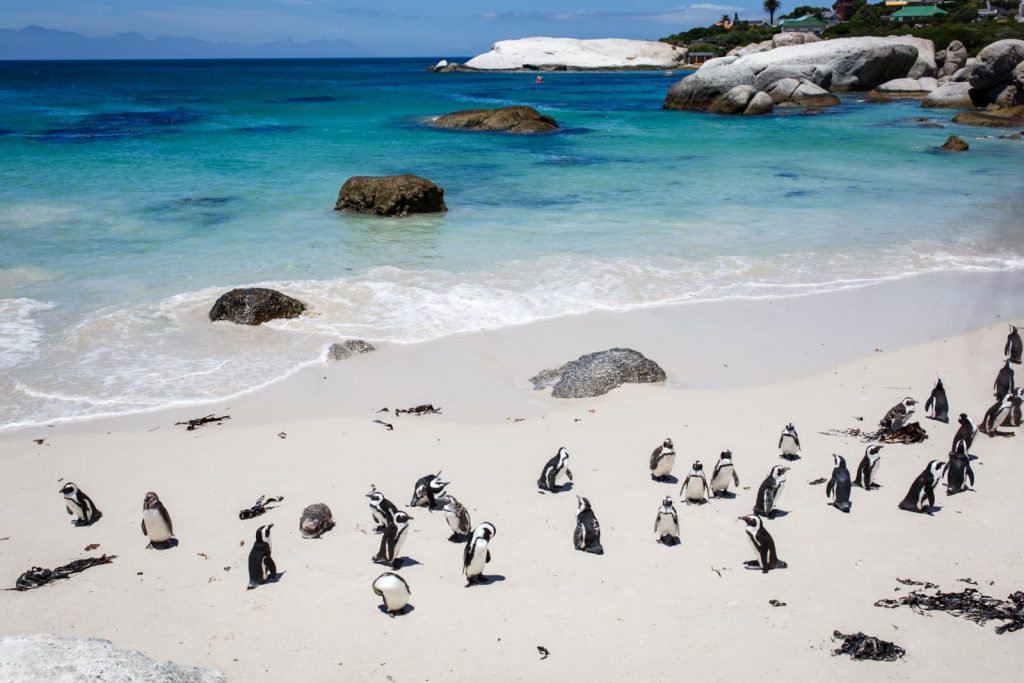
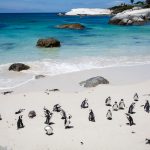
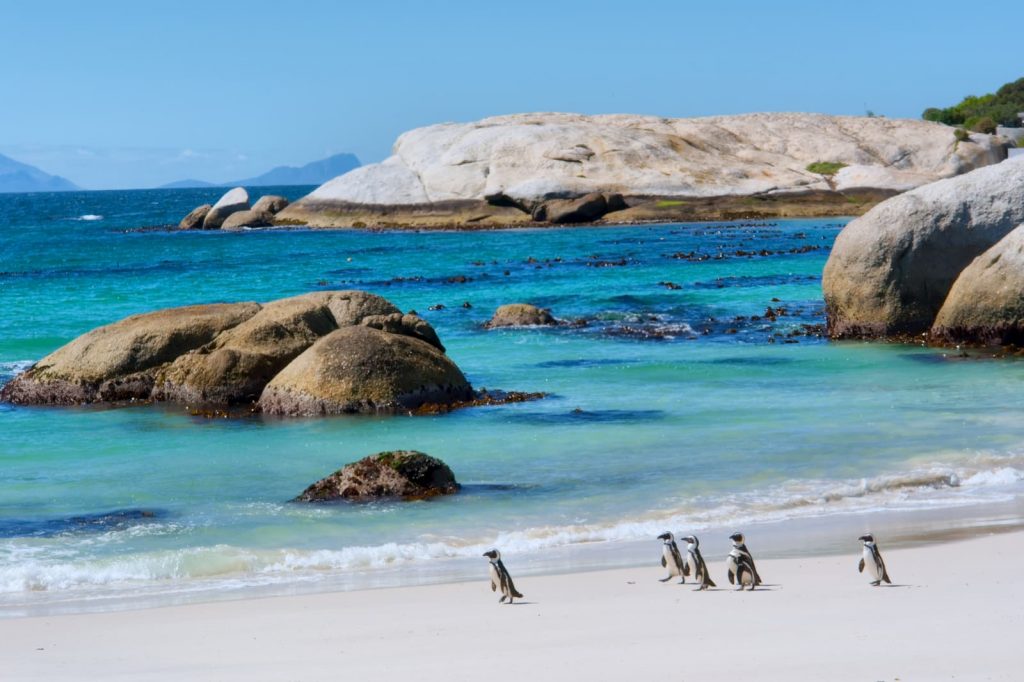
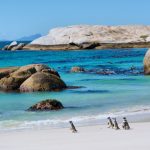
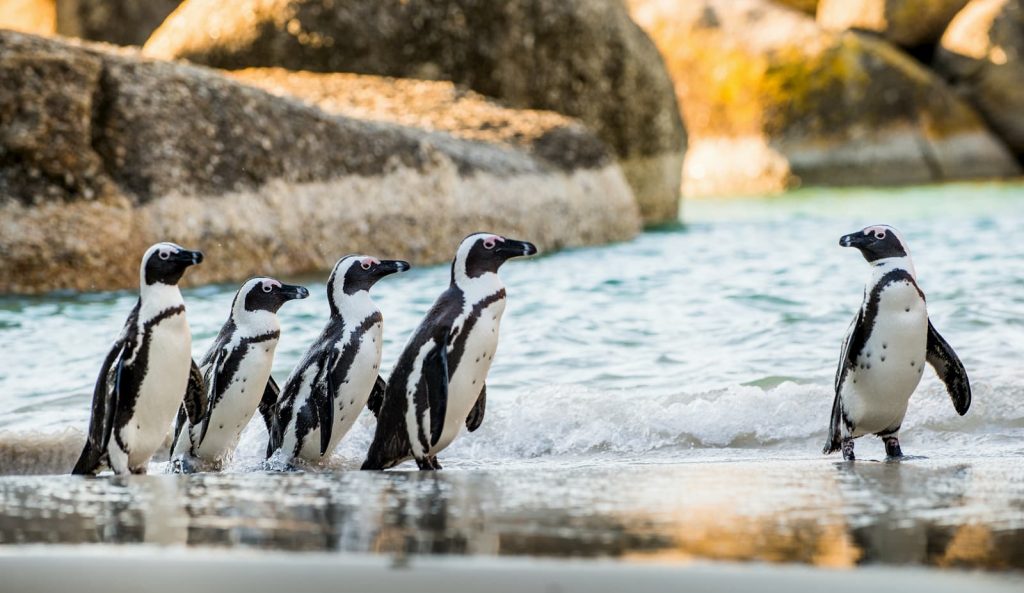
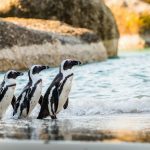
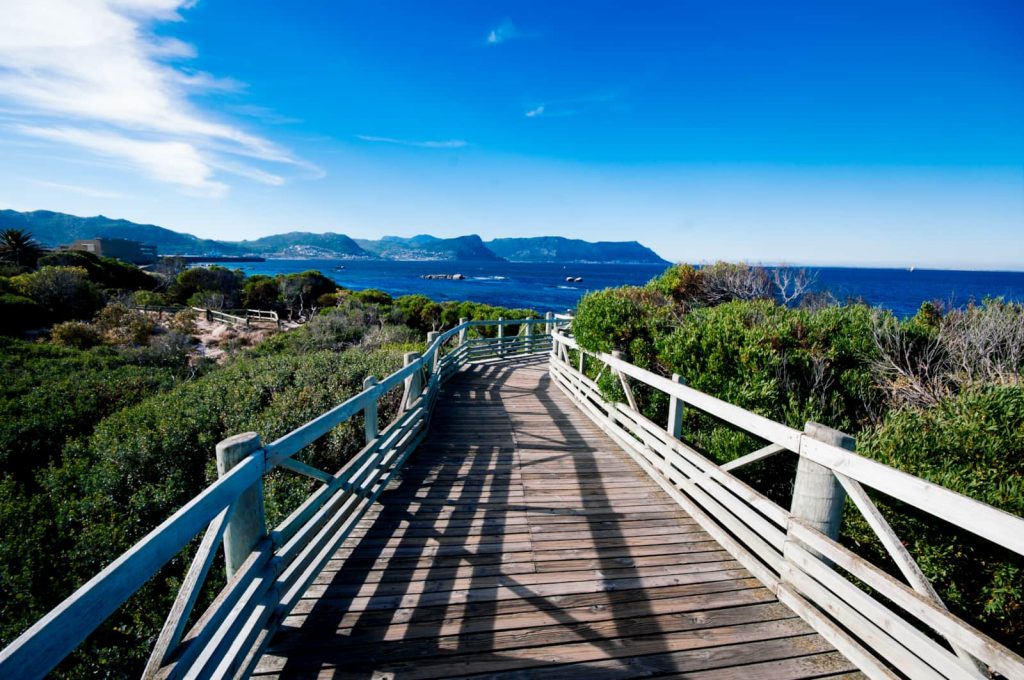
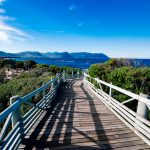
Cape Point
Oh my, I can hardly contain my excitement on this one! Do you want to see some crazy coastal views? Within the Table Mountain National Park and a Natural World Heritage Site, Cape Point anchors at the most south-western point of the African continent. Cape Point makes for a great day trip from Cape Town and is home to a variety of animals such as baboons (do not feed or you’ll learn your lesson the hard way!), ostrich, antelope, zebra as well as some bold birds that don’t mind trying to snatch some of your lunch! These are just a few that you may encounter as you make your way to the tip of the Cape Peninsula. Visitors can choose to walk 20 minutes up inclined paths along a breathtaking coastline stopping often to take in the edge-of-the-world like cliff faces or opt to ride the convenient and environmentally-friendly Flying Dutchman Funicular (cable railcar). Whichever route you choose, the Cape Point lighthouse at the peak is where views of endless ocean will greet you in every direction. Watch the ocean blue water fades to blue-green right before it turns white as it crashes into the bottom of the cliffsides. Beyond a doubt, Cape Point is one of South Africa’s most magnificent draws that is a hands down must see!
Tip
- As you make your ascent, branch off and take the short, side, stone-paved trails that lead to the best views.
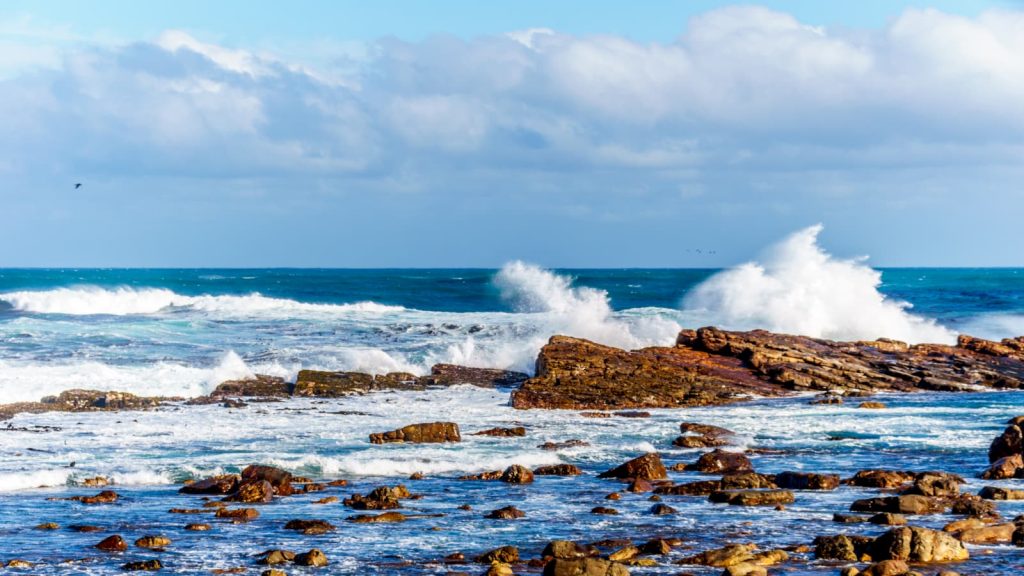
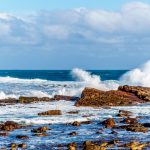
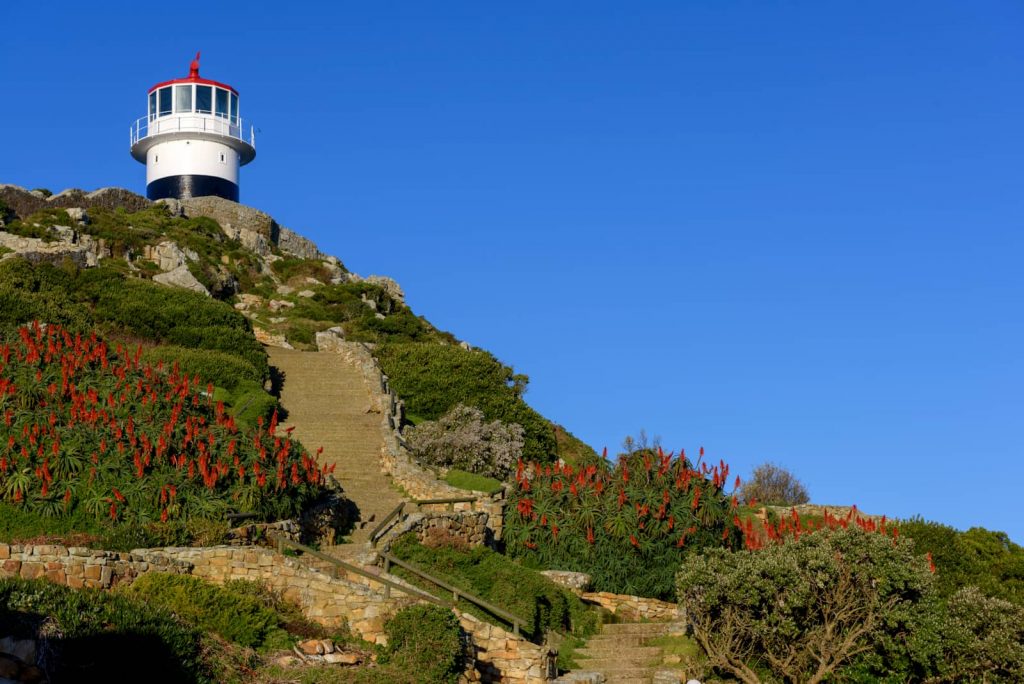
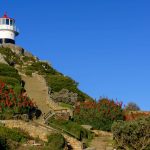
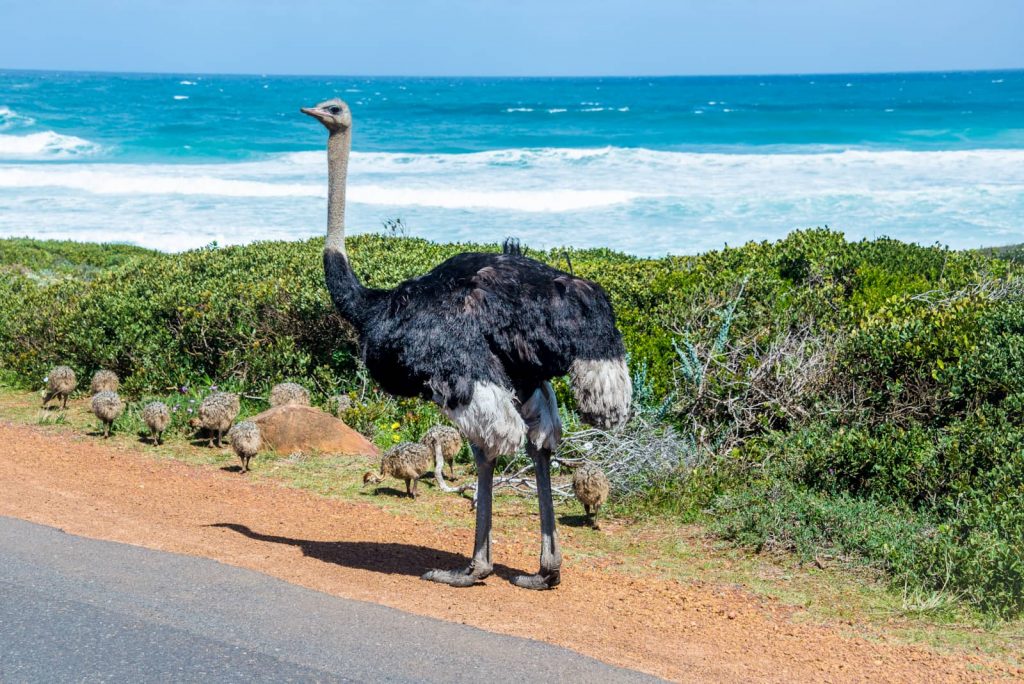
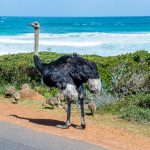
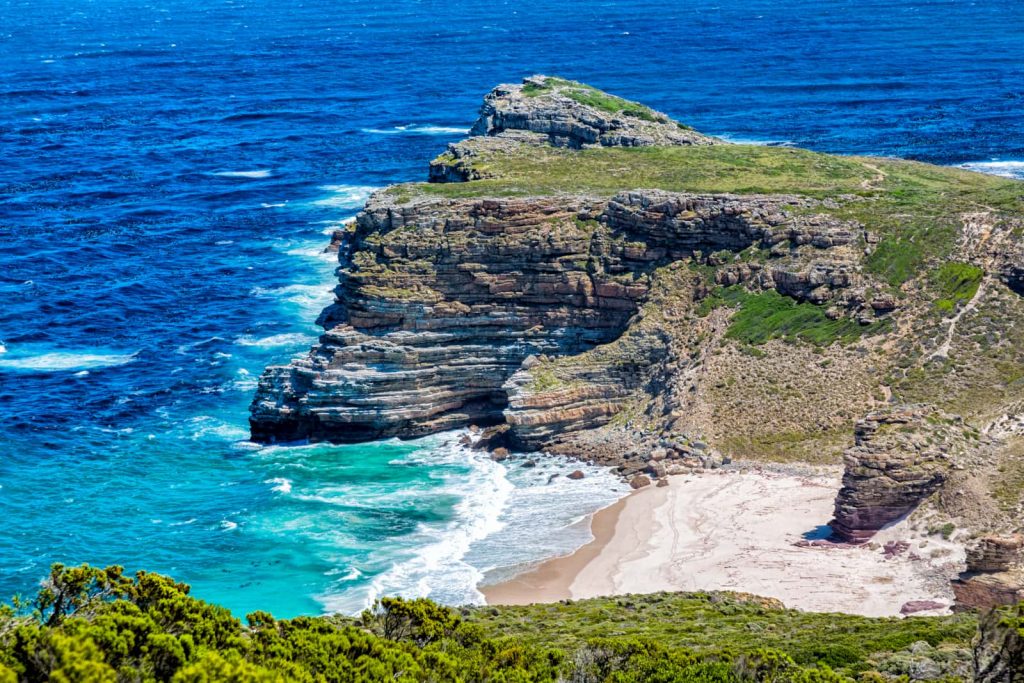
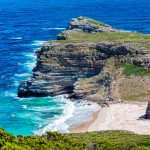
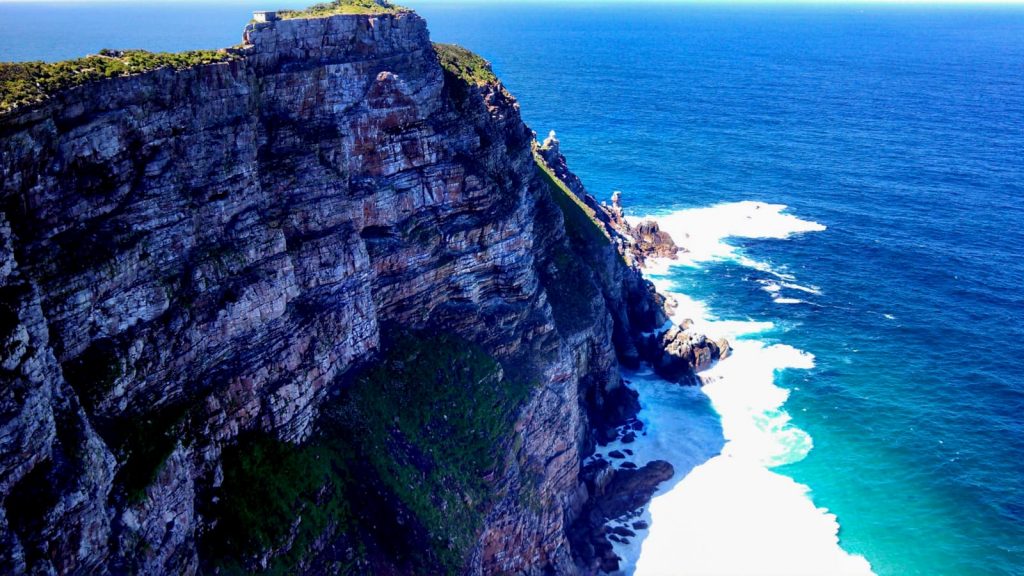
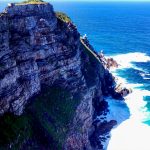
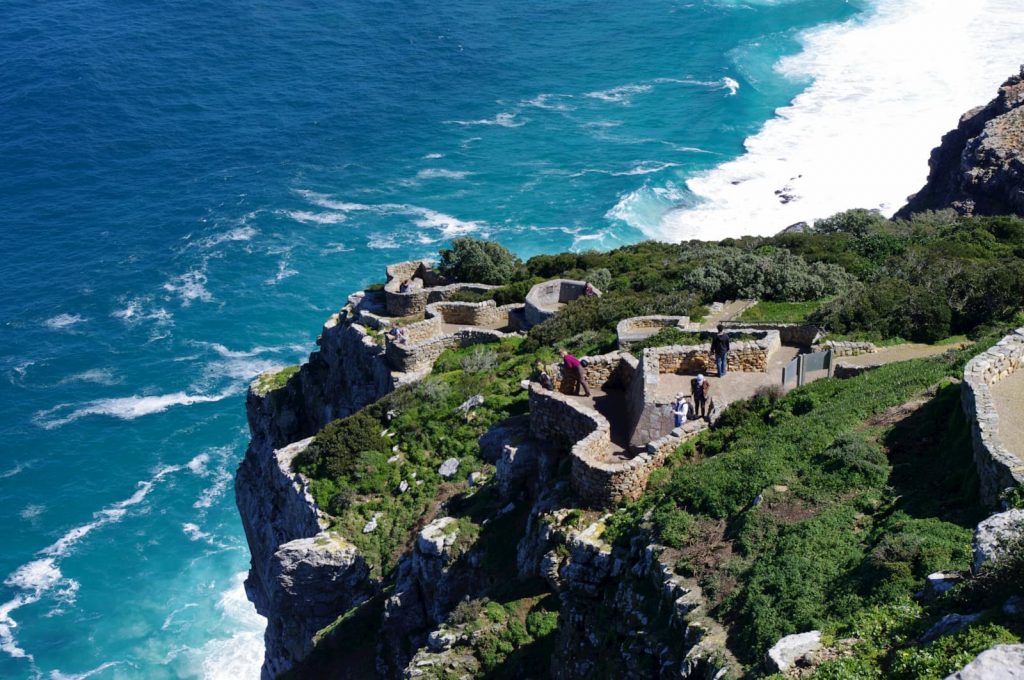
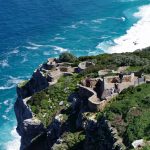
Sharks of False Bay
Have you ever wanted to get in the water with sharks in their natural habitat? I’ve done in multiple times and love it! It’s an adrenaline rush! Simon’s Town, located 45 minutes south of Cape Town, is the departure point for False Bay and Seal Island. Seal Island lies 8 nautical miles offshore from Simon’s Town and is home to 64,000 Cape fur seals. This historically has been a spot that Great White Sharks would hang out at regularly in season to hunt smaller sharks and seals and even “fly” or breach out of the water to catch them! Ethical Great White Shark cage diving was the ultimate experience on these waters. You could come eye to eye with these magnificent animals underwater and see just how curious and incredible they are. However, in recent years, their presence has dropped dramatically to practically zero. This is likely due to over-fishing practices that target smaller sharks which is the Great White’s main prey item. They do hunt seals also but they are not the primary food item on their menu. Unfortunately, the Great Whites have had to move on to other areas where their main food source is not threatened. It is our hope that regulations will be put in place to curb over-fishing and preserve the natural balance of this marine ecosystem.
Due to the Great White’s departure, the Seven Gill Cow Sharks have moved in as the new apex predator of these waters. They’re not as flashy as the Great White but they are very intriguing with 7 gill slits instead of 5 and a very prehistoric look to them. Seen year-round, they are very interactive around dive boats which makes for an exciting cage diving experience. Bronze whaler sharks are also sometimes seen now around Seal Island during the summer months.
NOTE: Gansbaai and Mossel Bay are other historical Great White hot spots down the South African coast but have also seen a sharp decline in Great White Shark sightings recently.
